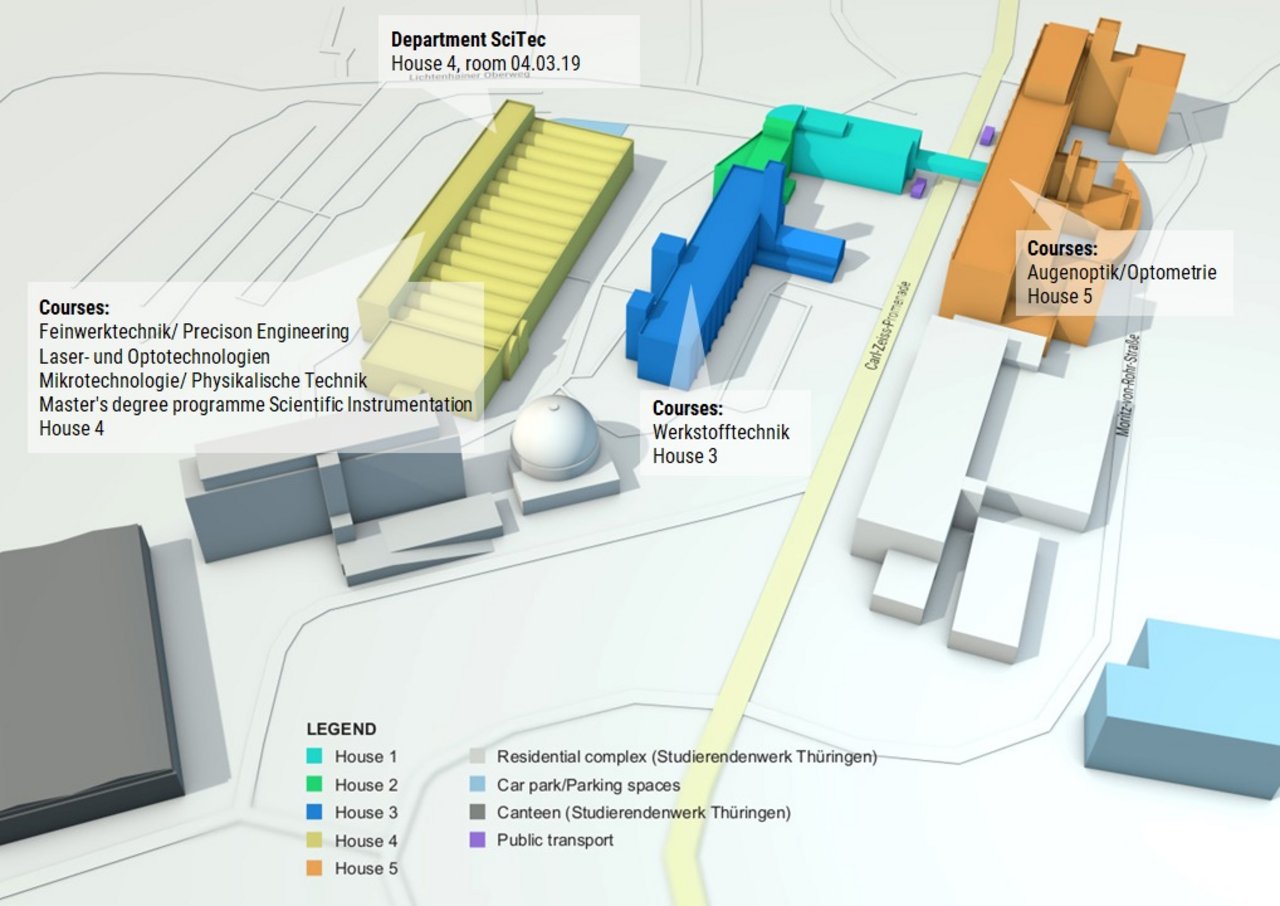Competence-based access to higher education:
B.Sc. Ophthalmic Optics/Optometry - Facilitating the transition from vocational to higher education for master opticians

In recent years, numerous changes have been observed in the SME sector, particularly in the medical trades. The optician's profession is not exempt from this. Increased medical requirements, the development of information and communication technologies, legal changes and healthcare reforms have significantly altered the occupational profile of opticians. In the medium term, it is to be expected that the still differing national job profiles of opticians and optometrists will undergo a standardisation process at European level, in the course of which the qualification levels and content as well as the activities granted to an optician will be standardised at a high level. The profession of optician in Germany is currently on its way from a craft-orientated to an academic profession. Over the last few years in particular, the job description has changed more and more from a craft to a service-providing healthcare profession. The professional association (ZVA) in Germany is therefore endeavouring to establish the "optometrist" as an independent profession on the basis of a university degree, as is customary internationally. In the current phase of repositioning, a qualification for optometrists (Hwk or ZVA) was created for this purpose. This is designed for master opticians who do not have a university education with clinical-optometric or medical content in order to give professional practitioners the opportunity for an "update". This further training opportunity is limited in time as long as master optician training in optometry still exists in Germany. It is also intended to enable professional practitioners to expand their knowledge and, in this context, to gain access to a bachelor's degree programme. The medium and long-term goal in Germany is university education in ophthalmic optics/optometry, as is customary internationally. For the EAH Jena and the ZVA, it is obvious that the best current response to the development described above is to offer and further develop a combined, interlocking, part-time Bachelor's degree programme.
The target group for this programme is professionals with a degree:
- ophthalmic optician master
- state-certified optician
- Extremely heterogeneous target group, in particular students with very different theoretical and practical knowledge
- Many different job profiles in this sector
The following key points were developed for the realisation of the project:
- Development concept for competence-based university access for master opticians to the Bachelor's degree programme
- Ophthalmic optics/optometry: credit transfer procedure for the recognition of prior learning
- Development of an e-learning platform: course management system with videos & interactive PPTs set to music
- Development of e-learning (e-learning modules for theory) and classroom modules (classroom modules for theory and practice)
- Finalising the modules: Adaptation of the modules for part-time study in distance learning programmes
- A) Optometry
- B) Scientific principles
The BMBF project "Facilitating the transition from vocational to higher education" (funding code ANKOM II W050004) enables master opticians to gain access to higher education at the EAH Jena for a part-time Bachelor's degree programme in Ophthalmic Optics/Optometry until the end of 2014. The professional practitioners receive individual recognition of their master craftsman qualification and their professional practice and can have up to 50% of this recognised for their Bachelor's degree in Ophthalmic Optics/Optometry. Recognition is granted on a case-by-case basis. There is a flat-rate recognition procedure for certain training institutions for master craftsman qualifications. Students can qualify for a Bachelor's degree alongside their profession through a mix of e-learning and attendance time. The content has a modular structure and is taught by the Interdisciplinary Competence Centre for Ophthalmic Optics, Optometry and Ophthalmological Optics (IAO) at the EAH Jena. The content is perfectly aligned with the repositioning of ophthalmic optics in Germany towards optometry and the accompanying increase in healthcare services to international standards. Only by practising the profession correctly can we ensure that people with disorders of the visual system receive adequate care and that our ageing population can see well and, if necessary, receive ophthalmological treatment in good time.
The aims of the training and further education programmes are
- Qualified and responsible diagnosis during an optometric examination
- Competent decision on "conspicuous" or "not conspicuous"
- Safe recommendation for the provision of visual aids, optometric care or referral to a doctor
- Preventive healthcare and early detection
With this project, the Ernst Abbe University of Applied Sciences is taking on an important and pioneering role among German training institutions for university-based further and advanced training in ophthalmic optics.

